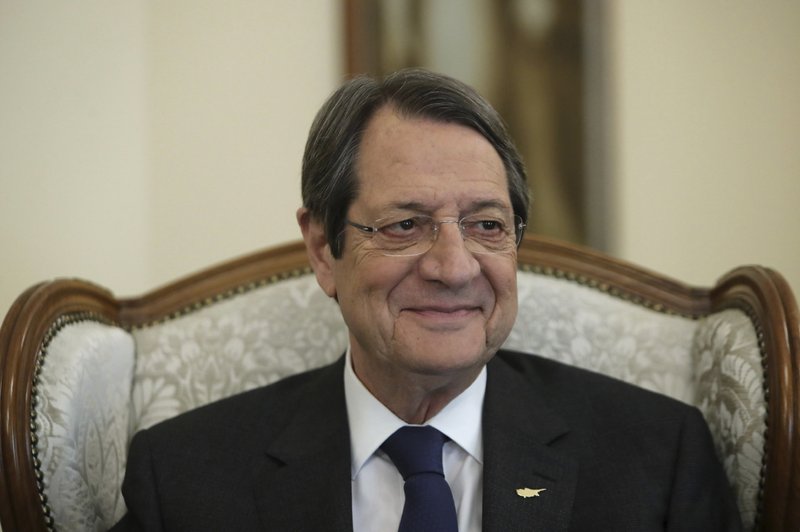
(Photo: AP)
NICOSIA, Dec. 20 (Xinhua) -- Cyprus Unit for Combating Money Laundering (Mokas) on Friday dismissed claims by an international anti-corruption organization that President Nicos Anastasiades and his former law office had been involved in money laundering activities.
Mokas said in a report that a thorough investigation of claims by the Organized Crime and Corruption Project (OCCRP) did not reveal involvement in any illegal or suspect activities 12 years ago either by the President or his former law firm that bears his name.
The investigation was launched in August, after an OCCRP report reproduced by local media implied a link between the president and his law firm with the so-called Troika Laundromat, which, OCCRP claimed, was a network of shell companies that operated from 2006 to 2013 moving at least 4.6 billion U.S. dollars and enabling its users to hide assets, evade taxes or launder money.
"As it appears from the investigation, the law firm in question provided professional services to the companies/clients, with a high international financial and business standing, while no involvement in illegal activities related to these transactions arises," Mokas said in its report.
Anastasiades remained co-owner of the law firm he established in the 1970s until February 2013, when he was elected president. His two daughters are currently shareholders.
Citing the contents from leaked documents of the now-defunct Lithuanian Ukio Bankas, OCCRP said that during the period when Anastasiades was a partner at the firm, it facilitated transactions carried out by four companies which were major players in the Troika Laundromat.
It claimed that two of those shells -- Batherm Ventures Ltd, registered in the British Virgin Islands and Matias Co Ltd, registered in Cyprus -- had sent more than 323 million dollars into the system for various reasons, citing two transactions in which Anastasiades' law firm was involved.
Mokas said its investigation revealed that "the money transferred came from the business/investment activities of the legal entities concerned and their owners."
It stressed that based on the data it collected, the sources of income of the companies from which this money was derived were mainly dividends from their direct and indirect participation in a subsidiary of the same group, with a large financial standing and proceeds from the sale of various participation and investments in various companies.
"This subsidiary, according to information obtained, is a multinational public company, with headquarters in London, which is one of the leading steel-producing companies in the world and is listed on the London Stock Exchange," Mokas said.


